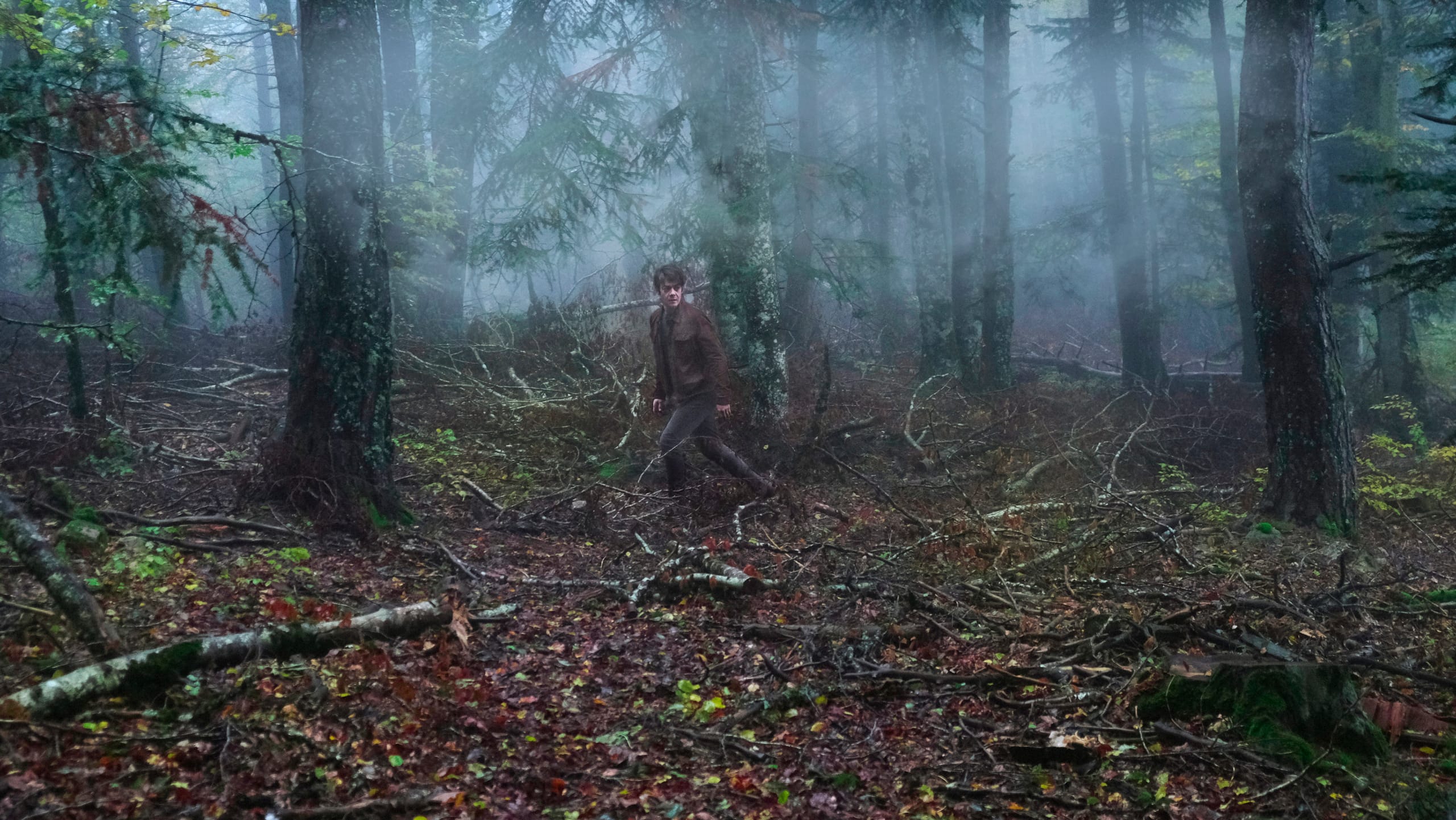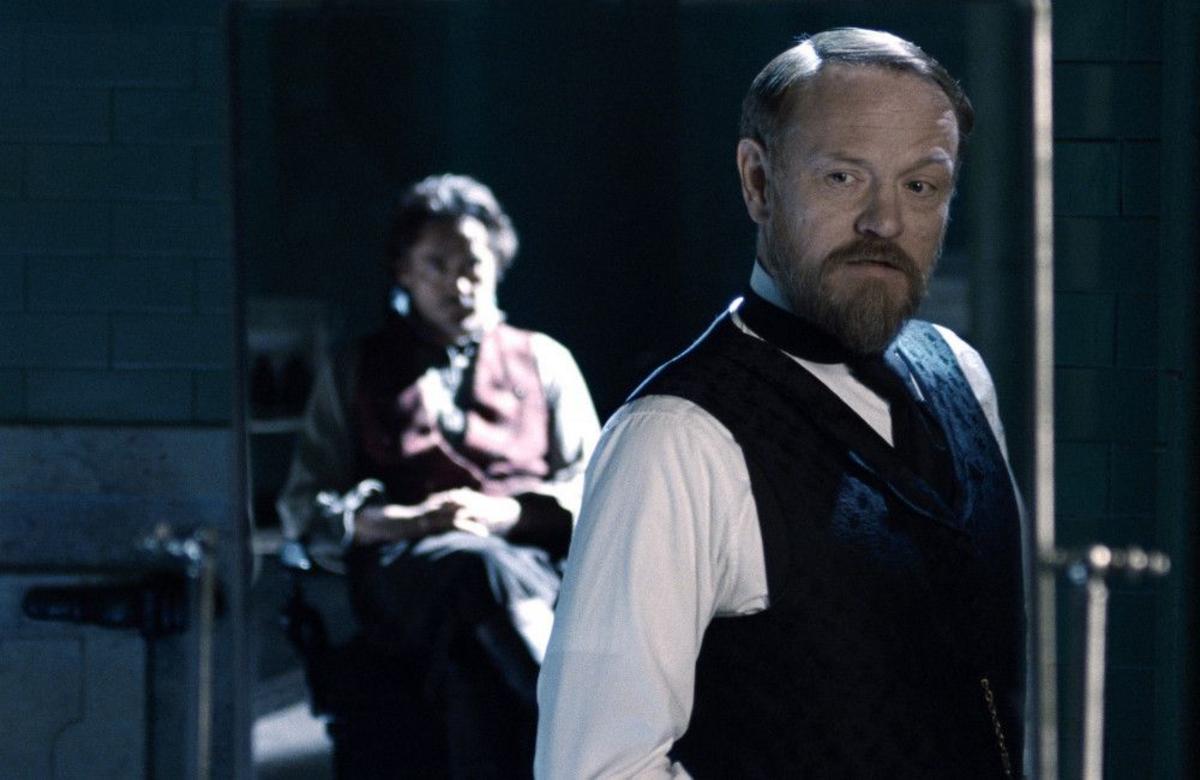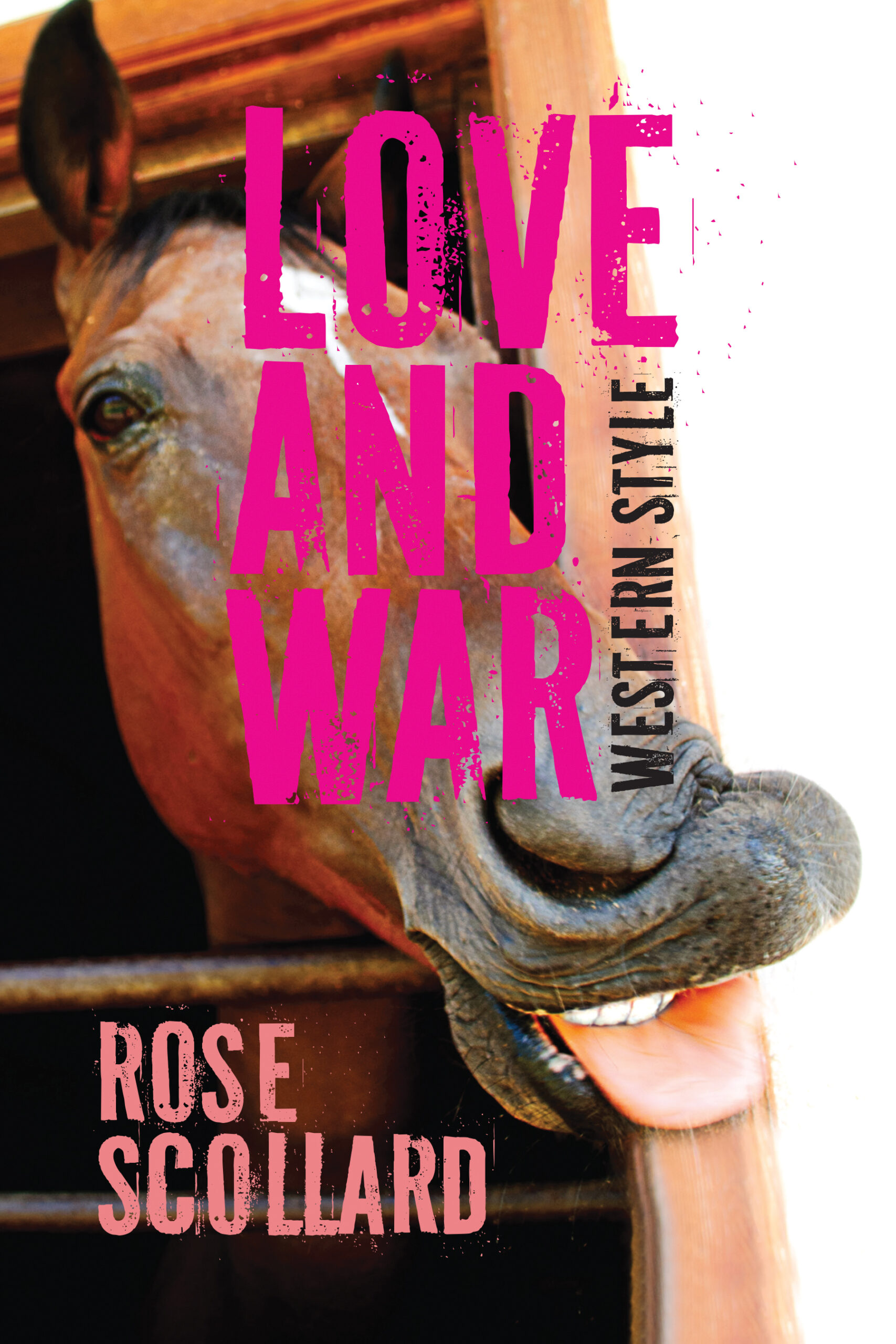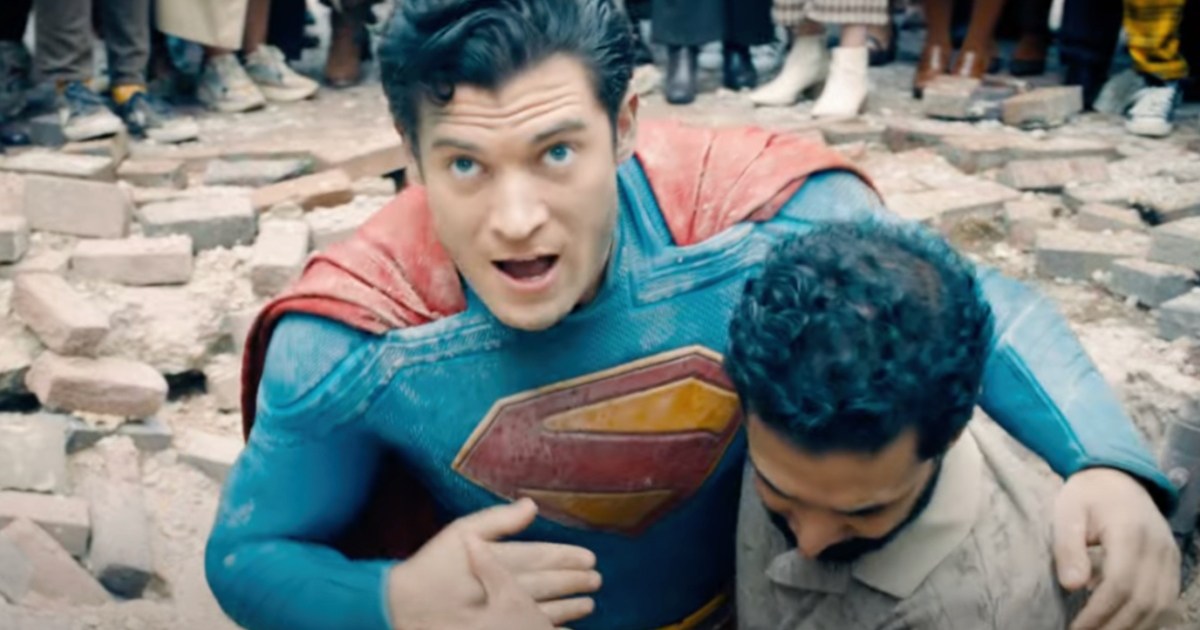French filmmaker Alain Guiraudie’s masterfully paced and executed Misericordia is the rare example of a thriller that wants you to laugh along with it. Granted, at the start it doesn’t feel like the kind of situational family drama or cat and mouse game that one necessarily feels comfortable chuckling at, nor is it a film that’s so misguided that it lapses into hilarity. Just as it takes time for Guiraudie (the equally masterful and even queerer Stranger By the Lake) to set the stage for this tale of small town secrets and hidden desires, Misericordia also edges into comedic territory so slightly, but potently that the audience will barely notice it happening. The dark comedy at the heart of Misericordia is so deadpan that viewers might still have trouble laughing at the film, but they’ll notice that a lot of this has taken a turn to the farcical. It’s a brilliant, character driven thriller that bucks convention at every turn. It’s also a lot of fun for thinking adults, which is a rarity in cinema these days.
Jérémie (Félix Kysyl) has travelled back to his small countryside hometown of Saint-Martial for the funeral of a close friend from his childhood, Jean-Pierre, the town baker. Instead of returning immediately home after the funeral, Jérémie decides to spend a few extra days staying at the house of Jean-Pierre’s widow, Martine (Catherine Frot). This doesn’t sit well with Martine’s son, Vincent (Jean-Baptiste Durand), who thinks Jérémie is taking advantage of his mother’s kindness and grief. After not so subtly trying to get Jérémie to leave, things reach a boiling point and, during a fight between the two, Vincent is murdered. Jérémie buries the body in the woods and tries to cover his tracks, but not many people are buying his story, especially Vincent’s wife, Annie (Tatiana Spivakova), and imposing local loner, Walter (David Ayala). Instead of leaving town, Jérémie persists, hoping that he can be the person to reopen the bakery after it has been shuttered for three months. In yet another twist, Jérémie might be able to get a local priest (Jacques Develay) to provide him with an alibi, but the man of God will want something in return that the younger man might not be able to provide.
Misericordia is a hard film to describe in terms of its plotting. It’s tempting to talk about how it all comes together, but like many great twisty narratives, a disservice is done by giving the whole thing away. I was hesitant to talk about the murder as an inciting incident, but the real meat of Guiraudie’s narrative lies in Jérémie’s cover-up attempts. Misericordia is a film designed to provoke emotional discomfort with a foundation built on layers of emotional blackmail that subtly cross generations. The backdrop – a small town that looks like almost any other nondescript hamlet in the world – is a cliched place to unfold a story of people coming to terms with repressed rage, desires, and secrets, but Guiraude shows a keen awareness for this trope and uses the small, interconnected world of Saint-Martial in novel, convincing ways.

There’s an intensity that takes root the moment Vincent starts paying Jérémie unsettling wake-up calls at four in the morning, and that never fully goes away throughout Misericordia. But gradually, through sharp writing and tremendous performances all around – the kind that rely on facial expressions and body language as much as they do the words on the page – a surreal kind of humour starts to take root, as if Guiraudie has found the hidden bridge in the cinematic forest from the likes of Alfred Hitchcock, Pier Paolo Pasolini, and Billy Wilder to the likes of Nathan Fielder and Tim Robinson.
The more Jérémie tries to keep his murder a secret, the more outlandish his surroundings and the actions of those around him become. Martine starts to act like an interrogating police officer who’s blindly taking big swings to uncover clues. Walter doesn’t want to say much because he already feels bad at having rebuffed Jérémie’s previous romantic advances and that guilt seems to weight just as heavily on him. It becomes abundantly clear why Vincent would’ve married someone like Annie, who initially seems quiet and reserved. The kindly priest puts Jérémie into a position that’s equally as awkward as his cover-up attempts. And Guiraudie even has the foresight to include a pair of cops (Sébastien Faglaine and Salomé Lopes) that are more obviously intended to be comedic relief in the latter stages of the plot.
Like all of the best dark comedies, the foolishness of the lead character’s endeavours are wholly apparent, but the viewer can’t help but get caught up in the squirm inducing nature of the narrative. Misericordia needles the audience more than an acupuncture session, but that’s part of this low-key thriller’s boundless fun and propulsive energy. The town and the woods surrounding them (a great place to forage for mushrooms!) aren’t very assuming to look at, but Guiraudie makes sure that all of these colliding characters and personalities look as out of place and out of their element like flowers growing from cracks in alleyway pavement. Or, you know, like mushrooms popping up in places where they previously haven’t been seen.
It’s also the rare example of twisty narrative that gives more back to the viewer upon multiple viewings. On a first pass, the story being told by Guiraudie and the tremendous amount of filmmaking talent required to keep things concise is immediately apparent. So too are the high calibre of the performances. But on a second viewing, it becomes a lot more acceptable to laugh at the more comedic aspects of the story and Guiraudie’s deadpan leanings. The first time I saw Misericordia (at a TIFF screening), there were some nervous laughs during the film’s second half, but most of the audience didn’t want to make their entertainment level widely known. The second time, the humour clicked at every turn, as well as Guiraudie’s cleverly disguised bits of foreshadowing. Misericordia is a compelling, locked in experience the first time around, but the second time is even more of an unlikely blast.
Misericordia opens in Toronto (at TIFF Lightbox), Vancouver (at VIFF Centre), Edmonton (Metro Cinema), Sudbury (Sudbury Indie Cinema), and Montreal (Cinema Beaubien, Cinematheque Quebecoise, Cinema du Musee) on Friday, March 28, 2025. It expands to additional cities throughout the spring.




